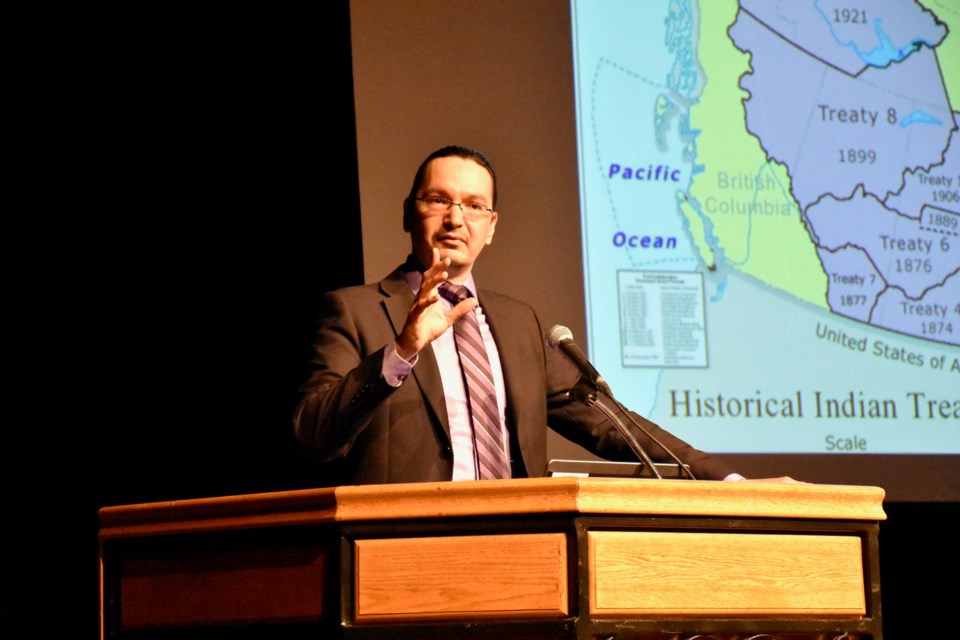Kevin Lamoureux is doing his part to make a better Canada.
Lamoureux is the education lead for the National Centre for Truth and Reconciliation and was in Timmins today talking to District School Board Ontario North East staff on their PA Day.
For almost two hours he talked about the Canada's history with Indigenous people and the path forward, and answered questions from teachers.
“A conversation like this is so wonderful because it gives young people the opportunity to first off understand that reconciliation is not an act of pity for Indigenous people, but rather an opportunity for us to contribute to a better Canada for all Canadians. For us to not just be concerned with the social injustice we see in the world around us, but to be transformative,” he said.
Many of the calls to action made by the Truth and Reconciliation Commission, he said, are about education and awareness.
“And if that’s true, which I know that it is, that means that whatever reconciliation is, it’s about education and awareness. So now we have a younger generation that are growing up with the opportunity to understand that we’ve all inherited the wreckage of a broken relationship; not with a sense of guilt or shame, not with a sense of hopelessness, not with a sense of blame, but with a sense of we have a pathway forward, we know how to get home and it’s through the implementation of the Calls to Action and using the UN declaration of the Rights of Indigenous People as a framework for reconciliation,” said Lamoureux.
He noted that the symbol for the National Centre for Truth and Reconciliation is a flame inside of a circle. The flame, he explained, is the spirit of reconciliation and the circle is an invitation for everyone to be a part of it.
“Reconciliation is to create a space of inclusion for all Canadians. And so we ask ourselves, what are we bringing to that fire? Is it a twig, is it a bundle of logs? Whatever it is, it’s appreciated and there’s an opportunity for us to do more if we can see the reason for doing so,” he said.
Learning about the history of residential schools in Canada and hearing the survivors’ stories can be emotional.
He said those emotions have to be honoured.
“We honour the voice of survivors, we honour the voice of those affected intergenerationally, but we also honour the voice of people who are non-Indigenous who have had no exposure to this who themselves are grieving because that’s a really real thing,” he said.
If one of the emotions people feel is anger, he noted that isn’t always a bad thing.
He said it could inspire people to stand up to injustice or be empowered.
“We should be angry about injustice, we should be indignant about seeing our brothers and sisters suffer. But the goal is not to fight, the goal is to bring together; the goal is not to shame, the goal is to empower. As people are processing stories that maybe they didn’t grow up with, I don’t want anyone to deny themselves the opportunity to feel what they feel, but use that as an opportunity to motivate,” he said.



